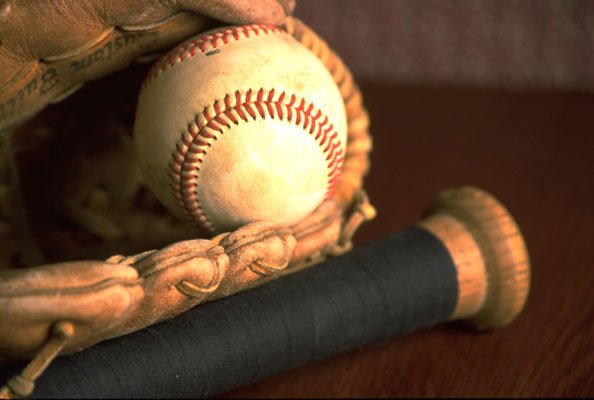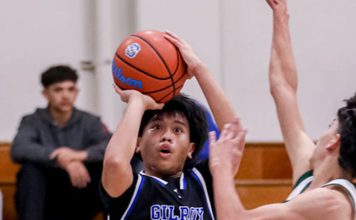SAN FRANCISCO
– A federal jury on Wednesday convicted home run king Barry
Bonds of obstructing justice for false statements to a grand jury,
but deadlocked on three perjury counts against him.
By Howard Mintz – San Jose Mercury News
SAN FRANCISCO – A federal jury on Wednesday convicted home run king Barry Bonds of obstructing justice for false statements to a grand jury, but deadlocked on three perjury counts against him.
The jury found that Bonds was overly evasive in his answers to questions about whether he had been injected by anyone other than a doctor, one of the components of the obstruction count. The jury came close to convicting him on one of the three perjury counts, deadlocking 11-1 on a specific charge related to whether he’d been injected by his former personal trainer, Greg Anderson, according to jurors interviewed after the verdict.
The jury was leaning toward acquitting Bonds on two perjury counts, one alleging he lied about ever knowingly using steroids and the other about whether he lied to the grand jury about using human growth hormone. The jurors said there was insufficient proof that Bonds knew he was using those substances when he testified before the grand jury in December 2003 in the midst of the BALCO steroids probe.
U.S. District Judge Susan Illston has not yet set a sentencing date for Bonds, but he likely will not face much, if any, time in prison based on her approach in sentencing others convicted of lying during the BALCO investigation.
In a statement, U.S. Attorney Melinda Haag said prosecutors would now review whether to attempt to retry Bonds on the three deadlocked counts, or simply settle for the single felony conviction.
“This case is about upholding one of the most fundamental principles in our system of justice,” Haag said in the statement.
Defense lawyers, who expressed quiet confidence they would persuade Illston to set aside the conviction because of what they consider serious legal flaws in the obstruction count, walked out of the courthouse with a somber Bonds. Bonds showed little emotion as the verdict was read, and was instructed not to comment by his lawyers.
Allen Ruby, Bonds’ lead attorney, said it was significant the jury did not find Bonds lied about knowingly using steroids or other performance enhancing drugs, the cornerstone of the case.
“There was no finding adverse to Barry Bonds on those charges,” he said.
Jurors, meanwhile, said the four days of deliberations were often tense, filled with some tears and arguments. But, in the end, they had concerns Bonds was too evasive in some of his answers, and they rejected the argument that prosecutors had no business investing so much time and money in the case.
“Perjury is a big deal,” said one juror, Angela, who, like the other jurors, declined to provide a last name. “It’s breaking the law. He went in and didn’t tell the truth. That’s a big deal.”
Bonds’ lawyers said they will move to set aside the verdict and the issue will be briefed in the next few weeks. Dennis Riordan says Bonds was cleared of anything to do with steroids and injections, but convicted on a statement to the grand jury about being a “celebrity child.” Prosecutor Matt Parrella says he was convicted of obstructing justice.
The verdict was the culmination of the largest doping scandal in sports history, which began in the fall of 2003 with a raid on BALCO, a now-defunct Peninsula laboratory linked to supplying scores of elite athletes with performance enhancing drugs.
Bonds, now 46, was always the biggest name tarnished by the scandal, and wound up in the government’s crosshairs from the time he testified before the federal grand jury that was probing the BALCO case.
The trial was an exploration of the truth, or falsity, of Bonds’ grand jury testimony and whether he lied when he denied knowingly using steroids as he chased baseball’s home run records. By the time the trial unfolded, Bonds’ defense team was conceding that he may have used newfangled steroids from BALCO, but argued that he was unaware he was receiving performance enhancing drugs from his personal trainer, Greg Anderson.
Anderson was a crucial figure in the case, largely because he refused to testify against his star client and childhood buddy. He spent the duration of the trial in prison for refusing to testify, and was only released last week when jurors began their deliberations.
As a result, the government relied on a number of former members of Bonds’ inner circle to build their case. This included Kimberly Bell, his former mistress, who testified of their nine-year affair and how Bonds told her in one conversation he was using steroids, as well as describing the physical changes he underwent as a result of steroid use.
Steve Hoskins, Bonds’ former business associate, also testified that Bonds told him of steroid use, and complained of a “sore butt” from steroid injections.
Defense lawyers attacked Bell and Hoskins’ credibility, depicting both as bitter and vengeful over their splits with Bonds.
Kathy Hoskins, Steve’s sister and Bonds’ former personal shopper, provided critical testimony for the government, telling the jury she saw Anderson inject Bonds in the stomach.
Prosecutors also had evidence that Bonds failed a 2003 drug test administered by Major League Baseball, testing positive for the “clear,” a designer steroid furnished by BALCO, and a female fertility drug used by male athletes to mask the effects of steroids.
Prosecutors insisted that it strained credulity to buy Bonds’ story that a superstar athlete would be oblivious to the fact he was taking steroids, as he bulked up and maintained a cozy relationship with Anderson, who was at the same time providing steroids to other athletes, including baseball players. Some of the those players, including former Oakland A’s star Jason Giambi, testified in the trial about their relationship with Anderson.
Defense lawyers portrayed the case as a witchhunt for the biggest sports star linked to BALCO.
For Bonds, the fight against the government has been a bid to preserve his legacy as one of baseball’s all-time greats, worthy of the Hall of Fame. But his case was one of many to expose baseball’s steroids era, with the trial providing perhaps the most candid, unvarnished portrait of the sport’s steroid problem.
Roger Clemens, arguably the greatest pitcher of that same era, will follow Bonds in a courtroom this summer, when he faces perjury charges for lying to Congress about using steroids.













